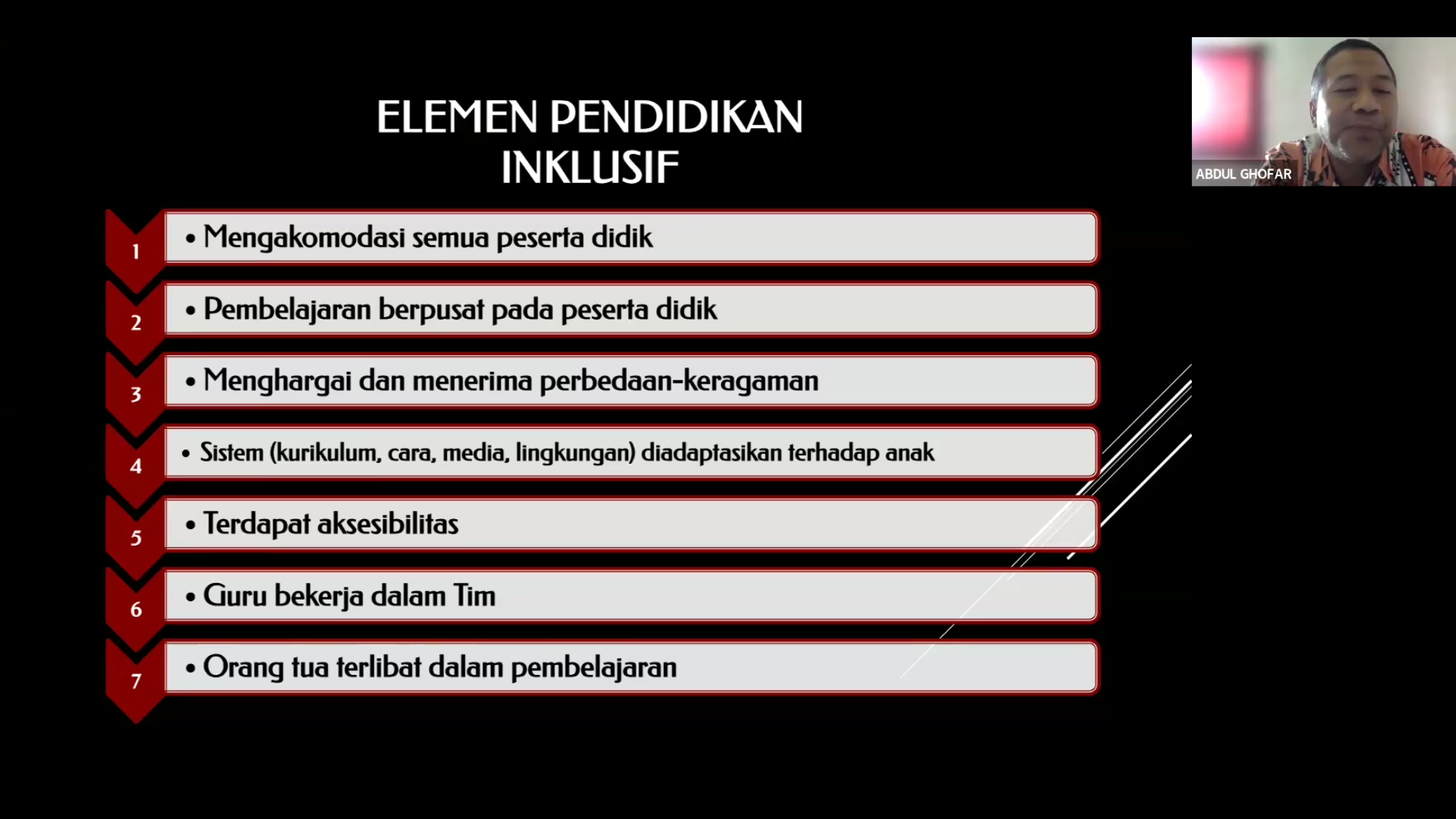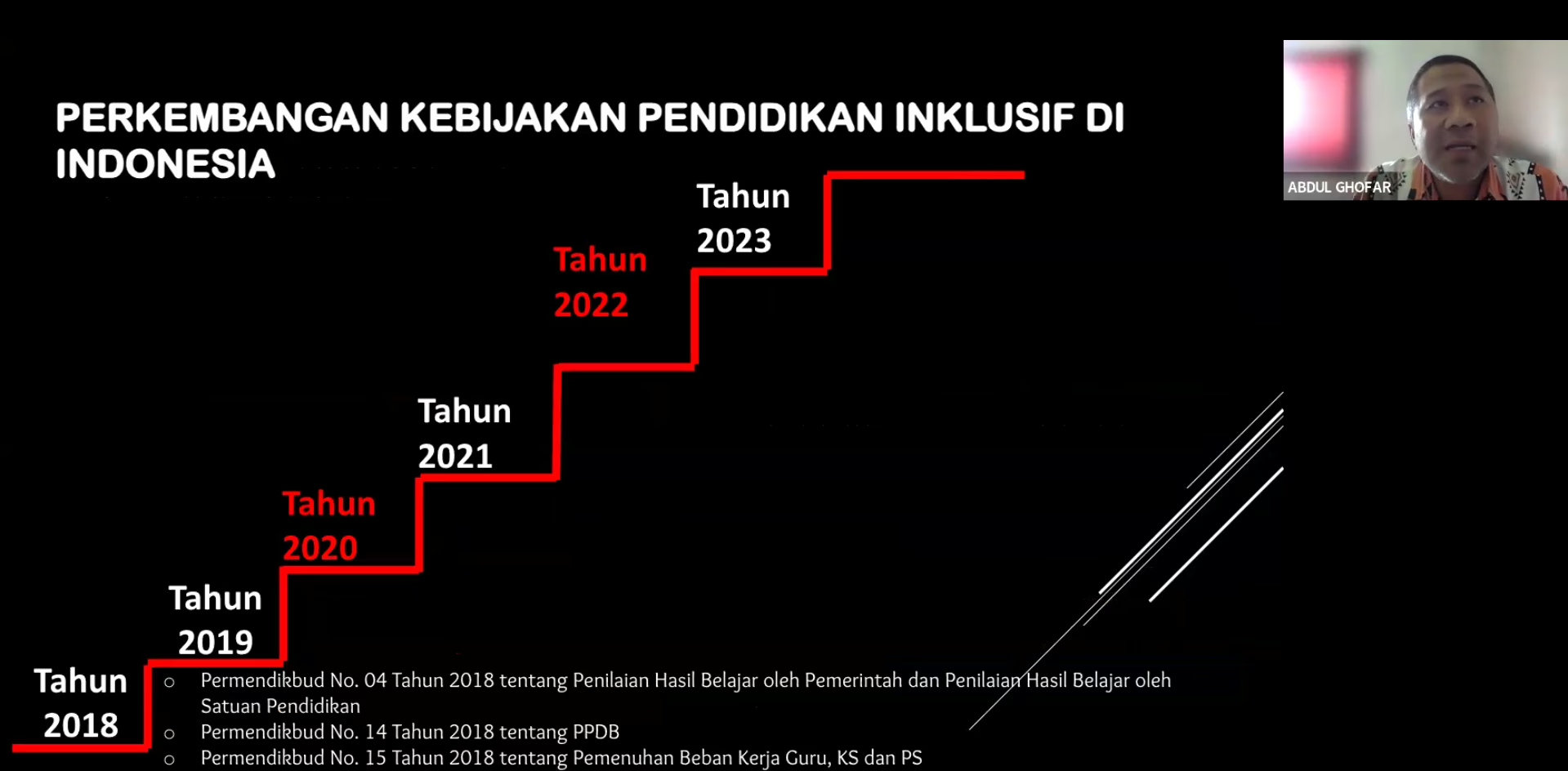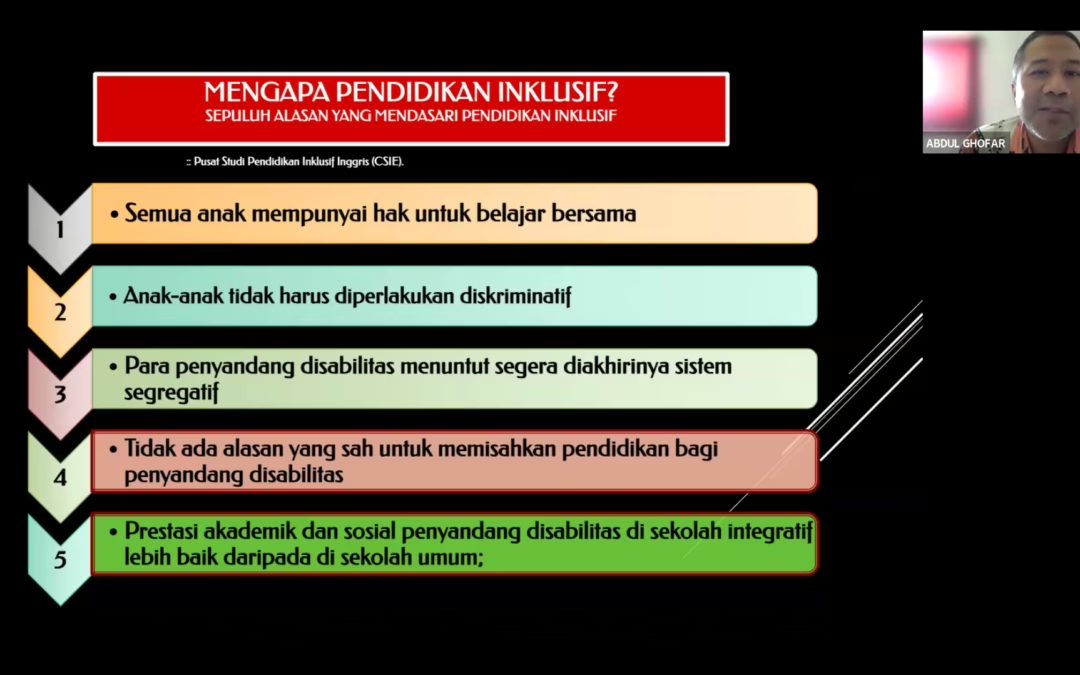Depok-The Occupational Therapy study program, Vocational Education Program, Universitas Indonesia (UI), held a guest lecture featuring Abdul Ghofar, A.Md.OT., S.Pd., M.H., C.M.PH, an occupational therapist who focuses on education. The activity, which was held online on February 12, 2025, discussed the importance of inclusive education in Indonesia, emphasizing the need for a growth mindset and the role of professionals such as psychologists, doctors, and occupational therapists in providing a holistic educational experience.
Ghofar began the lecture material with the concept of inclusive education, namely education that guarantees equality and equity for students with special needs and general students to participate in education together with a service that is tailored to the needs of the students. This inclusive education also needs to be a concern for all parties, including future occupational therapist students who are involved in the inclusive education environment. “Some important concepts in building inclusive education include available resources, diversity and openness, the education system in schools, and relationships with students. There needs to be a collaborative approach between educators, parents, and the community to create an inclusive environment that values and supports all children,” said Ghofar.
 (Photo: Ghofar explains the elements of inclusive education)
(Photo: Ghofar explains the elements of inclusive education)
However, there are still many challenges faced related to inclusive education in Indonesia. For example, in terms of participation, discrimination still occurs, schools are not friendly to all students, there is extreme separation of education based on certain identities, and many children have not been accommodated in schools for various reasons. In terms of the quality of the process, learning in schools is often not enjoyable for students, learning in schools is merely to complete the curriculum, and differences and diversity are less considered.
Seeing these challenges, there needs to be an implementation of inclusive education. Some elements of inclusive education include accommodating all students, respecting and accepting differences, parents being actively involved in learning, teachers working in teams, and others. Ghofar added, “Of course, this inclusive education needs to be supported by various parties, including the government, working groups, social institutions, families and school committees. So that the implementation of inclusive education can be realized evenly and in accordance with national education goals.”
 (Photo: Ghofar conveys the development of inclusive education policies in Indonesia)
(Photo: Ghofar conveys the development of inclusive education policies in Indonesia)
In the end, Ghofar also highlighted the importance of using a positive discipline approach to help students who feel intimidated can be more motivated to learn. Children with special needs often have a combination of internal and external barriers that require a comprehensive approach to be addressed. The guest lecturer closed with a discussion on the importance of inclusive education services in Indonesia and the world.

